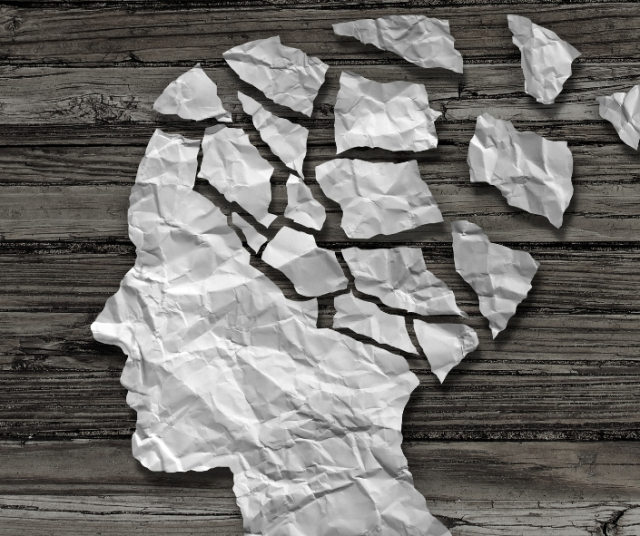World Alzheimer's Day , observed every September 21, is a date of global importance that seeks to raise awareness about a disease that affects millions of people around the world, including Peru .
Alzheimer's in Peru: A Challenging Reality
Peru, like many other nations, faces the challenge of Alzheimer's and other forms of dementia in its aging population. It is estimated that more than 150,000 Peruvians live with dementia, and this number is projected to increase significantly in the coming decades due to the aging of the population. However, public awareness of Alzheimer's in Peru is still limited, which can make it difficult to access medical care and adequate support for those affected.
Impact on society and families
Alzheimer's not only has an impact on the people who suffer from it, but also on their families, caregivers and on society in general. Caregivers often face a considerable emotional and physical burden in providing support to their loved ones. The lack of specialized dementia resources and services in Peru can make this task even more challenging. Additionally, the financial cost of medical care and long-term care can be overwhelming for many Peruvian families.
Advances in research and treatment
Although there is still no cure for Alzheimer's, scientific research has made progress in understanding the underlying mechanisms of the disease. In Peru, as in other parts of the world, scientists are working to identify early biomarkers and develop innovative therapies that can slow or prevent the progression of Alzheimer's. Early detection and access to appropriate treatment are essential to improve the quality of life of those affected.
The Importance of Solidarity and Education
World Alzheimer's Day provides an opportunity to promote solidarity and education in Peru. Public awareness is essential to remove the stigma associated with Alzheimer's and to promote a supportive environment for those affected. Awareness events, educational talks, and online campaigns can help disseminate accurate information about the disease and the resources available in Peru.
In addition, solidarity plays a crucial role in the provision of care and support. Families affected by Alzheimer's in Peru can benefit from local support groups, where they can share their experiences, get practical advice, and find a sense of community. Collaboration between government organizations, non-profit organizations and civil society is also essential to improve care and access to specialized services.
How to contribute and make an impact
Alzheimer's is a disease that affects millions of people around the world, including Peru. Contributing and making an impact in the fight against Alzheimer's is not only important, but can also make a significant difference in the lives of those affected and their families. Here are some concrete ways you can contribute and make a positive impact:
Education and awareness
Accurate Information : Educate yourself and others about Alzheimer's, its symptoms, available treatments and resources in Peru.
Talks and workshops: Organize or participate in educational talks in schools, communities or care centers to disseminate knowledge about the disease.
Media: Partner with local media to share stories of people affected, experiences of caregivers, and research advances.
Active participation
Awareness Events: Join World Alzheimer's Day events, health fairs, and activities in Peru to show your support.
Marches and Walks: Participate in charity walks or charity runs to raise funds and awareness.
Community Talks: Provides informative talks about Alzheimer's at community centers, retirement clubs, and other local organizations.
Support for caregivers and affected people
Support Groups: Work with local support groups for caregivers and family members, providing emotional support and sharing resources.
Visits and company: Volunteer your time to visit people with Alzheimer's and provide them with company, which can have a positive impact on their emotional well-being.
Respite for Caregivers: Provides temporary assistance to caregivers so they can take a break and take care of their own health.
Donations and financing
Alzheimer's Organizations: Contribute financially to local organizations working on Alzheimer's research, family support, and awareness.
Assistance Programs: Helps with financial assistance programs that help families access medical care and treatment.
Fundraising: Organize fundraising events, such as benefit concerts, auctions, or craft sales, to support Alzheimer's-related causes in Peru.
Volunteering
Associations and centers: Offer your time and skills in associations, day centers or residences for people with Alzheimer's, providing recreational and support activities.
Accompaniment: Accompanies affected people in daily activities or during medical visits, providing support and company.
Teaching: Teach crafts, music, yoga or other therapeutic activities that can benefit people with Alzheimer's.
Promotion of public policies
Advocacy: Join advocacy groups to advocate for public policies that improve access to healthcare and support for people with Alzheimer's in Peru.
Government awareness: Collaborate with local and regional authorities to raise awareness about the importance of allocating resources for Alzheimer's research and care.
Share personal experiences
Personal Stories: Share your personal experiences with Alzheimer's through blogs, social media, or local media to inspire others and build empathy.
Breaking the stigma: Open conversations in your community about Alzheimer's to break the associated stigma and foster understanding.
Collaboration between individuals, families, communities and the government is essential to meet the challenge of Alzheimer's in Peru and work towards a future in which this disease has less impact on society and people's lives.
